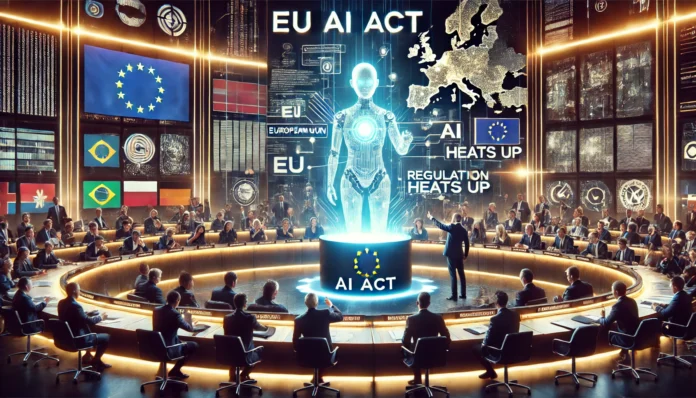The global discourse around artificial intelligence is rapidly evolving, with regulatory frameworks now taking a prominent role. In a significant development, the European Union’s landmark AI Act is moving closer to full implementation, setting a precedent that is sparking both anticipation and debate across the world. While some provisions of the Act are already in effect, a major compliance deadline for AI system providers looms on May 2, 2025, requiring them to have their codes of practice ready to demonstrate adherence to the new requirements. The full application of the Act is anticipated by August 2026, with high-risk systems granted an extended deadline until August 2027.
The EU AI Act is arguably the most comprehensive regulatory framework for AI globally, designed to ensure AI systems are human-centric, trustworthy, and safe. It categorizes AI systems by risk level, with «unacceptable risk» systems being outright banned. These include practices deemed a clear threat to fundamental rights, such as harmful AI-based manipulation, social scoring, and real-time remote biometric identification in public spaces for law enforcement. This proactive stance by the EU aims to address potential harms before they become widespread.
However, the path to full implementation is not without its challenges and ongoing discussions. Transparency and accountability, central tenets of the Act, remain contentious issues. Industry representatives express concerns that overly prescriptive transparency obligations could hinder the development of proprietary technologies and compromise competitive advantage. Conversely, consumer advocacy groups emphasize the need for robust transparency measures to protect users and ensure ethical AI deployment. The delicate balance between fostering innovation and safeguarding societal well-being is at the heart of these debates.
Beyond the EU, other nations are also grappling with how to regulate AI. The UK, for instance, recently rejected the European Commission’s request for the EU AI Act to apply fully in Northern Ireland under the Brexit Withdrawal Agreement, citing the complexity of the Act and a need for further scrutiny. Instead, the UK Financial Conduct Authority (FCA) announced the upcoming launch of a live AI testing service, aiming to assist firms in the development and deployment of compliant AI models. This service, proposed for launch in September 2025, reflects a different approach to regulation, emphasizing collaboration and practical testing over immediate, sweeping legislation.
The ethical implications of AI are a constant undercurrent in these regulatory discussions. Debates around bias in algorithms, data privacy, and the impact on employment continue to shape policy considerations. The sheer speed of AI advancement means that laws and regulations must be flexible enough to adapt. There is a growing consensus on the need for global standards for data management and accountability for AI-driven decisions, yet achieving such consensus remains a significant hurdle.
Investment in AI continues unabated, even amidst these regulatory shifts. Companies are increasingly seeking proven results from generative AI, pushing for more mature and reliable applications. Recent funding rounds, such as Perplexity AI securing $500 million, underscore the strong belief in the transformative potential of AI. However, as AI systems become more powerful and integrated into critical sectors like healthcare, finance, and public services, the imperative for robust regulation and ethical guidelines becomes even more pronounced.
The coming months will be crucial in observing how these regulatory frameworks evolve and how AI developers and deployers adapt to the new landscape. The EU AI Act, with its ambitious scope, will undoubtedly serve as a significant benchmark for other nations as they navigate the complex interplay of innovation, ethics, and governance in the age of artificial intelligence.




